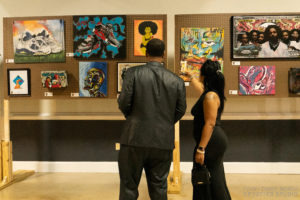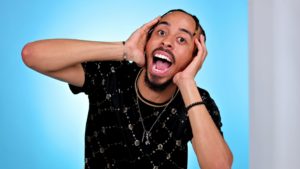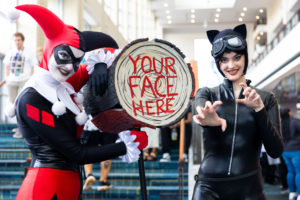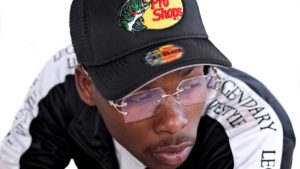INSIDE The Mind Of TV Host And Producer Lisa Konczal

Meet Lisa Konczal, a TV Host and Producer who was born in the heart of Ohio and raised in North Carolina. Growing up in Winston-Salem, she fostered her adventurous spirit through her love for the arts and the outdoors. From community and musical theater in her school years to to dance choreography as an adult, Lisa has always been a lifetime learner. A graduate of North Carolina State University and the documentary studies program at Duke, her communications skills are on full display during her travel show “Nice To Meet You,” where she journeys to small towns, to engage in heartfelt conversations with everyday people. To learn more about Lisa K, her company, and upcoming projects, follow her online at www.veritecreative.com
Why did you pursue documentary studies at Duke University?
I taught in French Guiana right after college and began to ask myself, “Okay, what do I want to do with my life?” I still wanted to pursue documentary film. So when I got back to the US, I was extra focused. I knew I wanted some kind of advanced degree and needed additional training beyond what I got in college at NC State. Duke University’s certificate program was perfect. You had to apply, but it wasn’t the same as applying to Duke as an undergrad or graduate student, and it was very, very affordable. That was the best thing I could have done, honestly, in terms of going someplace. I took all the classes that some people do in maybe a year or two, pushed it into six months. I knocked out all the foundational classes I needed to be able to shoot and edit video.
What inspired you to create the show “Nice To Meet You”?
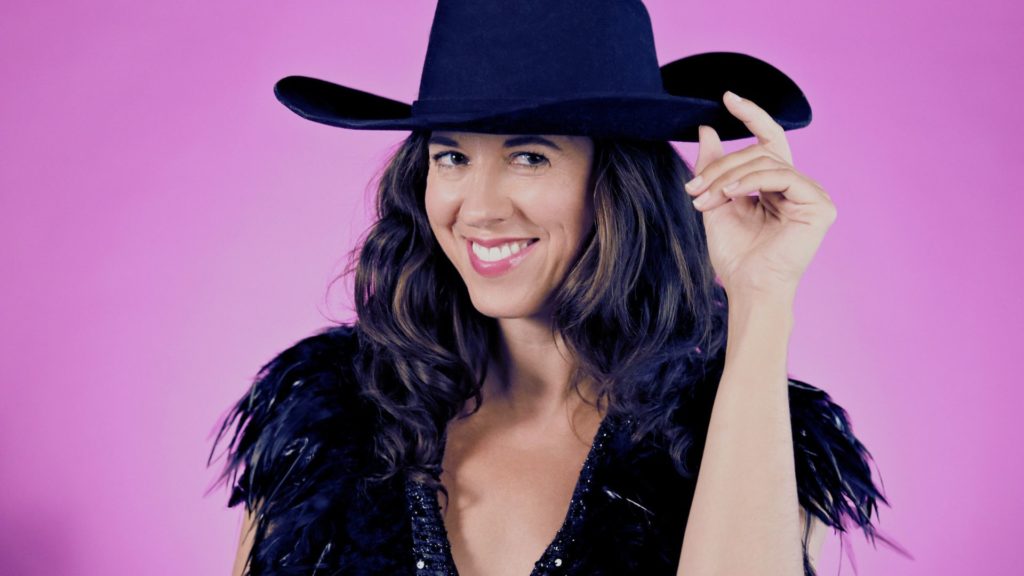
I was living in California at the time. One day, I got in my car in Hermosa Beach to drive across the country to my roots here in North Carolina. My plan was just to stay a few months and just soak in the love of the people that I grew up with and also just the culture and kind of the down-to-earth vibe and be in the peacefulness. And along the way, I just shot a video. I don’t know what was percolating, but I knew it was going to be something. I had a fantastic experience road tripping across the state, all on my own.
And I had my cowboy boots on, as I do most of the time. My California plates were still on my vehicle when I got to North Carolina, and I started exploring really small towns that I’d never been to before. I’d grown up here, and yet, places that were 10 minutes this way or 45 minutes that way (or beyond) that I’d somehow never been to before.
After the first time I did that, shooting video of the conversations I had with random people on their doorsteps, I kind of honestly forgot I’d ever shot those conversations because it wasn’t done in this deliberate, like, I got to get the shot way. I was just like, oh, I want to remember what you’re saying, I want to remember this history you’re sharing. Do you mind if I just take my cell phone out here?
How did the concept evolve from when you first had the idea?
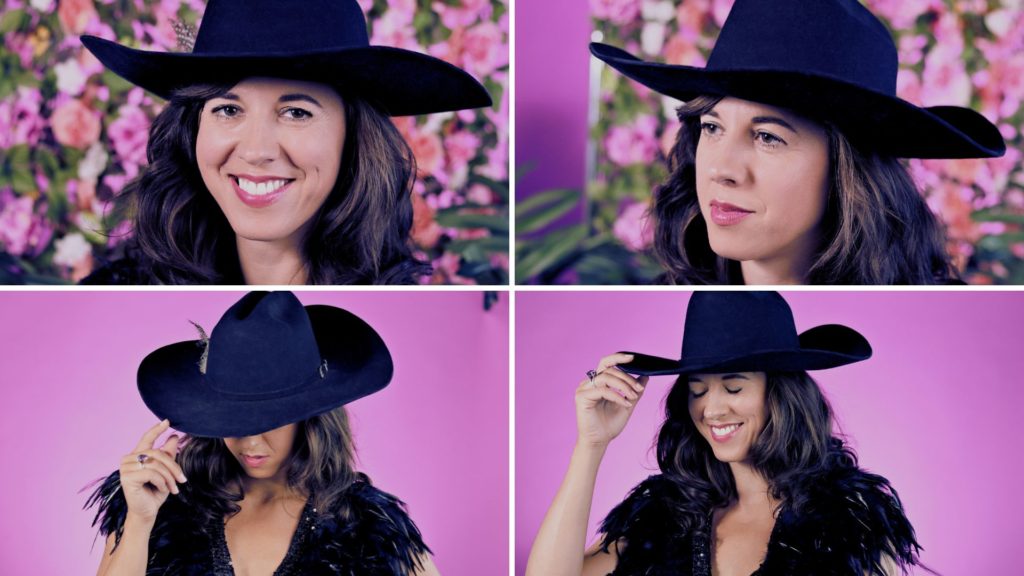
So a while later, I was like, you know what, the next goal on my list has been to host a show. I’ve had this goal for a long time, I’ve been making my way down my list. Dance in a music video, check, blah, blah, blah, blah. So now we’re on to hosting a show. And in talking to people that knew me, and in reflecting myself as to what is, how can I put my essence on camera? How can I live the way I normally live, and do the things I do, and put that into some show form? And the fact is, is that I’m always going all sorts of different places, talking with all sorts of different people, be it in North Carolina, crossing the country, or overseas.
And I just, I feel like I’m constantly having these moments where I’m like, gosh, I wish someone else could have heard that, what this other person just said. Where we start talking, and I think, you know, if they could just see this person and see me, they may think we wouldn’t connect. Or we’re in my dad’s store, the Train Loft, a train store in Winston-Salem, and I’m talking to this older gentleman, and suddenly we have this connection over something.
And I think, what? When I was in Mount Airy, this happened, that’s where I shot the first episode of Nice to Meet You. And there’s this guy on his motorcycle, and he pulls up, and he starts talking to me, and he asked me about California. Which, sometimes those conversations can go different ways with people here. But what always happens is there’s this very quick realization of something we have in common. Some kind of connective location or something we are passionate about, or we’re just like, oh, you know, where you get each other. That always happens. It doesn’t take long before you say, like, hi to someone, nice to meet you, before you get there. And then maybe you gain perspective because they’re also the differences that you have. So I feel like that’s just how I’ve been living my life for a long time, and especially when I travel, that I always am just drawn to literally just wandering around and the people that I meet. And so, when I was chatting with my mom, like, what should I call this show? She came up with the name, Nice to Meet You. And I was like, that’s perfect! And I was really, really excited about that. So that’s kind of how Nice to Meet You evolved.
How did you end up dancing on the Old Town Road music video?
The casting was handled by an agency that specializes in casting real people. For instance, there was a girl who worked as a horse wrangler and also danced. She was one of the real characters they selected. I had been line dancing for years, even though I’m originally from North Carolina and not necessarily from a country background. Line dancing was my thing, and I was thrilled about the casting call for line dancers. When I arrived at the audition, there were others auditioning to be part of the live band setup. The atmosphere was very welcoming and supportive, and the people were kind enough to teach me the dance routine. I had heard about the audition through a dancer friend in LA and another contact from Winston-Salem. This connection helped me even learn about the audition. When I came in for my time slot at 2 p.m., I didn’t exactly fit the mold they were mainly looking for. I was with a group of guys, essentially filling in for another male dancer. Originally, I was cast as a background dancer, which was a bit disappointing as I usually audition for specific roles. However, they mentioned that there was a possibility of selecting additional principal dancers from the background group. Although I usually don’t count on such opportunities, I accepted the background role. On the day of the shoot, I watched the principal dancers being taught the line dance routine. I wished I could be among them and felt that I deserved it.
Why did they elevate you from background to principal dancer?
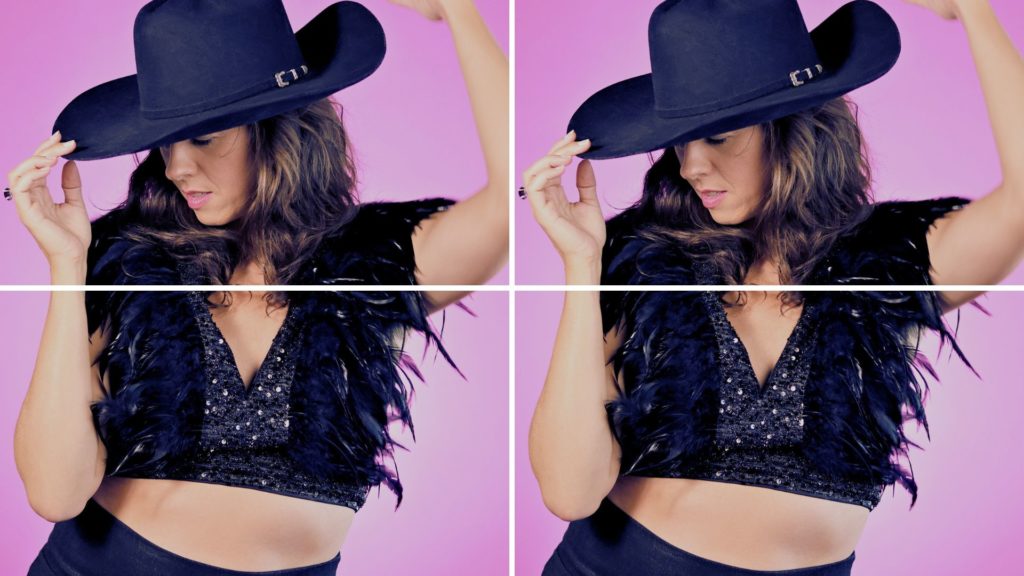
As the day progressed on set, I was chosen to be featured in a different way. This marked the beginning of my journey from a background dancer to a principal dancer. I remember a moment when the director noticed me among the dancers and decided to feature me more prominently so I had to switch wardrobes. At one point, all the dancers were asked to dance freely to the song while being filmed for the director’s consideration. This allowed me to showcase my skills and led to my selection as a principal dancer. From there, I had to learn the dance routine and prove myself during the filming. The process was gradual, and I had to prove that I could keep up. There were moments when my position in the music video was still uncertain, but I kept pushing. During lunch and other breaks, I connected with fellow dancers like a guy named Bubba Dean Rambo, who had an extensive background in dancing and working with artists like Dolly Parton. Lil Nas X and Billy Ray Cyrus, were both from Atlanta, so that also added to the Southern connection I felt on set. It was a rewarding experience to dance in a music video that ended up winning a Grammy, fulfilling a dream that aligned with my passion for dancing.
Was photography harder for you to learn than choreography?

I’d say we all have things that just come a little naturally to us, so I suppose it depends on the person and what feels kind of more innate. But what underlies, I think, a lot of things overall, is our ability to not worry about how we’re being perceived, if we’re the best. Is someone looking at how I’m doing that move? I always say when I’m teaching interactive dance entertainment, I call it. Nobody is psychoanalyzing your footwork over there.
With photography, if you get bogged down with questions like, “Is this a good photograph?”—good to who? Are you the best photographer in the area, in the world, in the country at this particular thing? Oh my gosh, you can just be disabled. A lot of people don’t get up to dance because of these things. They don’t pick up the camera or pursue it in the way they might have.
So whether your thing is photography, dance, or something entirely different, I think at the base, it’s about recognizing your own strengths. Doing enough different things that you can discover what those strengths are. Not being afraid to be vulnerable—we hear that word a lot—but you know, not like maybe you’re used to being really good. I’ve definitely taught a lot of people. If you’re used to being really good at things in general, being willing to accept that you might not do it perfectly the first second someone’s teaching you something. That’s okay, more than okay, it’s normal. To me, I operate in a very intuitive way. I do that with photography and dance. If you asked me to do some modern dance step or a ballet move, or if you used certain dance jargon, I wouldn’t know what you’re talking about. You could rattle off certain things about photography too, and I might not have the ability to talk about that techy thing in the way that someone else could. And those things don’t mean that I can’t be a great dancer, a great photographer, or that I can’t just really enjoy it for myself.
What types of resources does LA have that NC still needs?
There are definitely things that I think North Carolina needs for artists that LA does provide. I could go on for a long time on this topic because I think there are probably increased opportunities in North Carolina now. I was saying earlier that my highest paid commercial photography shoots were in North Carolina in the last few years working with people from LA and New York who had come here. There are some opportunities here, but one of the integral pieces of what North Carolina needs is even just mentors, parents, teachers, people telling folks, all folks, that their dreams are valid.
I do believe in that. L.A. is a place where there’s a lot of people dreaming big and a lot of people collaborating together and a lot of opportunities and anything you could want to do and all kinds of people from all over the world, all over the country, from no money to A-list actor parents having challenges along the way but also making a lot of dreams happen.
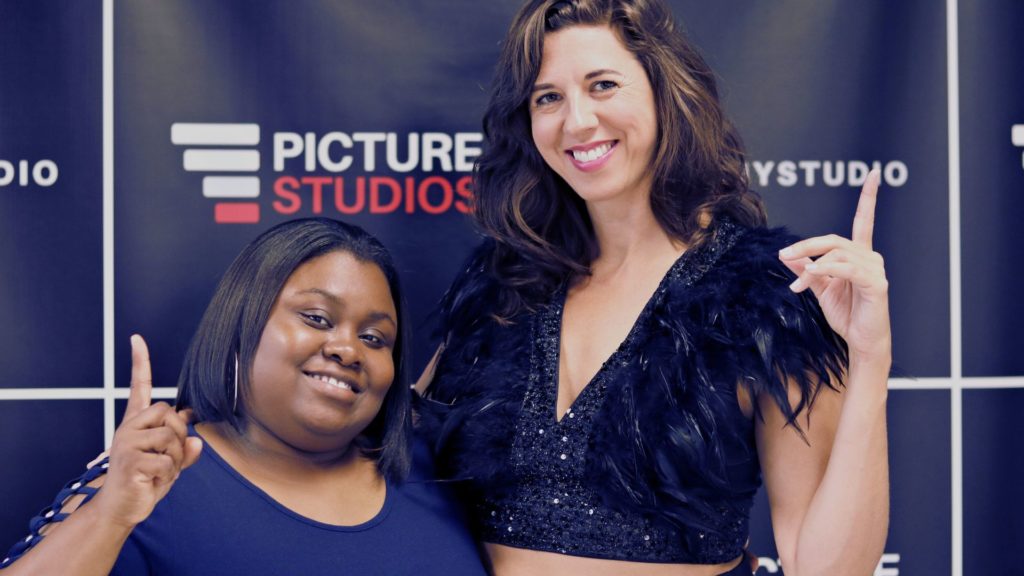
As an artist, there are parts of the state where there are artists doing their work. But there are these phrases of starving artists or this idea that art is fluff or extra or unnecessary. And the reality is, how are we going about our day? What are we looking at? We’re driving down the road. We’re listening to the radio. We’re listening to a radio host. We’re listening to advertisements. We’re listening to music. We’re seeing a billboard. You know, we go home. We’re trying to, like, take a break from all the to-dos and the day. And we put on a show or we put on a movie or we have, like, way too many channels we could ever possibly need for all this stuff we’re consuming. And then we’re, like, addicted to the dopamine hits off of our phone. And we’re looking at Instagram and the Instagram ads and the Instagram posts and the Reel and everything else. This is media. That is what artists do. They create media, as well as design the products and the myriad of things that we use.

What North Carolina really needs is just mentors, parents, teachers, people telling folks, all folks, that their dreams are valid. – Lisa Konczal
